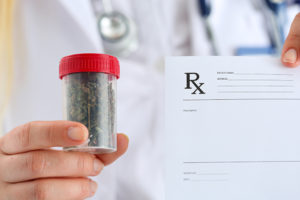 Following the enactment of Act 16 of 2016, also known as the Medical Marijuana Act, the use of certain forms of marijuana (termed “medical marijuana”) has become legal in Pennsylvania for certain serious medical conditions. This does not necessarily mean that school law in Pennsylvania permits the use of medical marijuana by staff or students.
Following the enactment of Act 16 of 2016, also known as the Medical Marijuana Act, the use of certain forms of marijuana (termed “medical marijuana”) has become legal in Pennsylvania for certain serious medical conditions. This does not necessarily mean that school law in Pennsylvania permits the use of medical marijuana by staff or students.
The forms of medical marijuana acceptable under the Act are: pill; oil; topical forms, including gel, creams or ointments; tincture; liquid; and a form medically appropriate for administration by vaporization or nebulization, excluding dry leaf or plant form.
The “serious medical conditions” for which medical marijuana may be used are listed below. A few of the conditions are broad and common, raising the likelihood that teachers and school students will be prescribed such medications and may need to utilize them during the school day. The specific medical conditions include:
• Amyotrophic Lateral Sclerosis (ALS)
• Autism
• Cancer
• Crohn’s Disease
• Damage to the nervous tissue of the spinal cord with objective neurological indication of intractable spasticity
• Epilepsy
• Glaucoma
• HIV/AIDS
• Huntington’s Disease
• Inflammatory Bowel Syndrome
• Intractable Seizures
• Multiple Sclerosis
• Neuropathies
• Parkinson’s Disease
• Post-Traumatic Stress Disorder
• Severe chronic or intractable pain of neuropathic origin or severe chronic or intractable pain in which conventional therapeutic intervention and opiate therapy is contraindicated or ineffective
• Sickle Cell Anemia
The Pennsylvania Departments of Health and Education have issued guidance concerning the administration of medical marijuana to school students. In particular, the Departments have provided that under a Safe Harbor Letter, parents of students with certain serious medical conditions (see limited list, below) can administer the medication to their child, while maintaining a safe environment for other students at the same school. However, any use of medical marijuana on school property is problematic for schools receiving federal funding, as use and/or possession continue to be illegal under Federal law. The recommended guidance is in effect until the Pennsylvania Department of Education promulgates regulations regarding the possession and use of medical marijuana, and reads as follows:
“A parent, legal guardian or caregiver may administer medical marijuana to their child/student on school premises provided that the parent, legal guardian or caregiver: (1) provides the school principal with a copy of the Safe Harbor Letter; and (2) notifies the school principal, in advance, of each instance on which the parent or caregiver will administer the medical marijuana to the child/student. The parent/caregiver shall follow all school protocols applicable to visitors to the school during the school day.”
“A parent, legal guardian or caregiver shall bring to the school and administer the medical marijuana to their child/student without creating a distraction, and shall promptly remove any excess medical marijuana and related materials from the school premises after the administration of medical marijuana is complete. The school shall provide a secure and private location for the parent/legal guardian/caregiver to administer the medical marijuana to the student.”
“Students themselves shall not be permitted to possess any form of medical marijuana at any time on school property or during any school activities on school property.”
However, despite legalization of medical marijuana on the state level, marijuana in any form continues to be a Schedule I controlled substance under Federal law. Possession and use of marijuana continues to be a violation of Federal law. In addition, various Federal laws, including the Every Student Succeeds Act (ESSA), require educational entities receiving federal funding to maintain a drug-free environment. Consequently, a violation could risk federal funding.
While use and administration of medical marijuana on school property may be prohibited, schools in Pennsylvania can allow parents to administer the drug to their child while off school property. Accordingly, a parent or guardian may provide a Safe Harbor Letter for their student to the principal, and may be permitted to take their student off of school property in order to administer the medication. If the parent does so, he/she also may be required to notify the school nurse that the medication has been administered.
School administrators face more challenges than ever before, including interpretation and implementation of the medical marijuana laws in Pennsylvania. Raffaele Puppio’s school lawyers have decades of experience counseling entities throughout Pennsylvania and particularly in Delaware County. If you are facing issues regarding the use of medical marijuana in a Pennsylvania school, contact our education lawyers. We are here to help.

